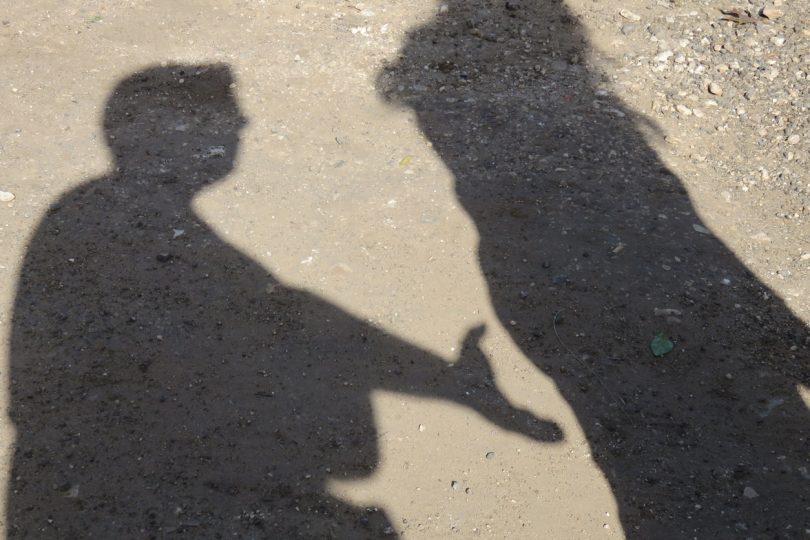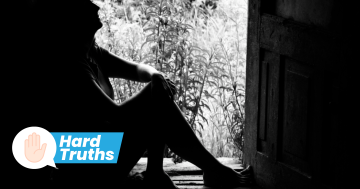
Police reports of family and domestic violence have gone down during the pandemic, worrying support services who are seeing an increase of women seeking help on the frontline. Photo: File.
Concerns are being voiced for survivors of domestic and family violence during the pandemic as ACT Policing revealed that there has been a drop in reporting, prompting fears from many frontline agencies that victims may not be able to access the help they need.
Crisis services say they are seeing a small uptick in demand, and a large increase in the complexity of issues as victims are stuck at home with their perpetrators with fewer freedoms because of lockdown measures, ACT Victims of Crime Commissioner Heidi Yates told Region Media.
Direct referrals from the police to victim support and family violence order applications have both dropped off, but frontline workers are reporting a spike in people seeking support, Commissioner Yates said.
“There was about a 19 per cent decrease [in reported family violence incidents] in the month of April compared to the same time last year.
“Also, [there was] a huge drop in the family violence offences that were charged [by police], perhaps as high as 40 per cent compared to the same time last year.
“That drop has been of concern to police in addition to myself. At Victims ACT we have seen that overall, the proportion of new matters coming to us that relate to family violence has increased in the last two months.”
While there is already a large amount of underreporting of the issue, because of COVID-19 circumstances the reporting rates have dropped even further, Commissioner Yates said.
“When you talk to our colleagues on the frontline, they have experienced an increase in people seeking support across the community in relation to safety, but also a large number of existing clients whose risk [in their] circumstances has become escalated because of the COVID-19 environment,” she said.
“I think it is highly likely that the incidence of family violence has increased across the ACT and one of the reasons for that is isolation is a tactic of control that is used very commonly by abusers. The isolation requirements allow for much greater surveillance and regulation of people’s activities.
“Also, the community fear about the virus itself is another tool that abusers are using. For example, misinformation about how the virus is contracted or scare tactics to control or blame people.
“Saying ‘you cannot go out because if you go out and talk to your friend you will get sick and then we will all die and it will be your fault’, so it is playing on those fears about the virus to further control them.”
Despite a drop in charges for family violence offences, family lawyer from DDCS Lawyers Di Simpson says there has been an increase in Family Court activity related to parenting arrangements as a result of COVID-19.
“We already know there is an increase in filing in the last month in the family law world, so more people have commenced proceedings compared to the same time last year in both courts,” she told Region Media.
“There is about a 39 per cent increase in the Family Court and a 23 per cent increase in the Federal Circuit Court in [four weeks over March and April].”
The pandemic has forced the Family Court to implement a new COVID-19 list to expedite urgent family matters.
However, the Family Court list also includes disputes pertaining to current parenting arrangements that are changed because of the pandemic when visiting centres or interstate borders are closed, or one person has tested positive for the virus and cannot fulfil parenting obligations due to sickness or concerns of infection.

Commissioner Heidi Yates says there is increased concern for victims of domestic and family violence during the pandemic as lockdown measures allow abusers to exert more control over victims. Photo: Supplied.
Reporting rates across the sector have been going up over the last five to eight years, Commissioner Yates says, but there are still a large number of unreported cases.
While underreporting is a perennial issue within the sector, there is also no clear data about how many women are not coming forward.
In Australia, one woman dies per week on average at the hands of a partner. In the ACT, police were called out to almost 2,400 family violence incidents in 2018. To flatten this curve during the pandemic women have to know that support services are still open and have the capacity to help them if they are suffering at home, Commissioner Yates said.
“People’s personal support networks are most likely to be a strong source of information about available help,” she said.
“Normally health services are the first point of contact for victims seeking help and they are a point at which the service sector might detect they are not OK and need support.
“A number of healthcare providers are no longer using face-to-face services and emergency presentations have significantly dropped during COVID-19, that might otherwise be a point women can disclose [abuse] and be connected to help.
“We are encouraging the community to reach out, and stay in contact, and if someone does not seem alright, you may need to be the person that reaches out for advice about how you can help them.”





















